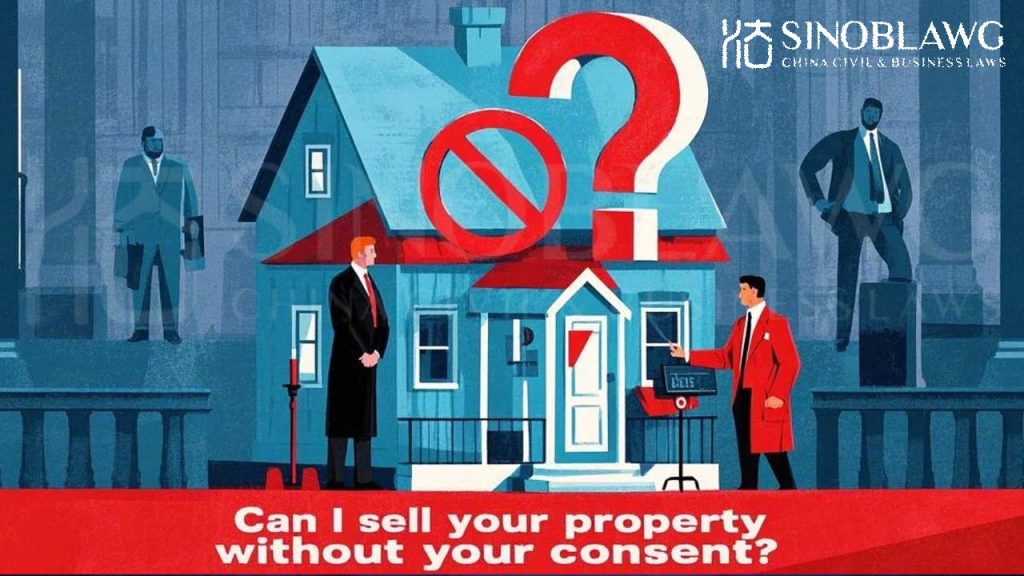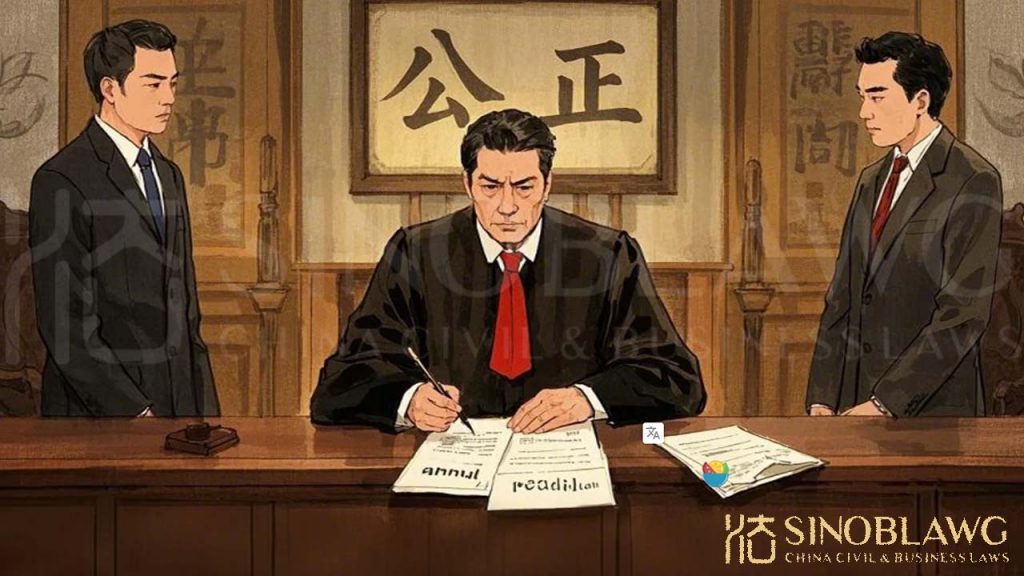This is a stupid question indeed. But it is not a chitchat here on this blawg.
I. Judicial Change from Denial to Affirmation of Validity of Unauthorized Disposal Contract
In the not-long past, if anyone (even if your spouse, parents, co-owner) sells your property without your consent, the legal outcome is outright: the contract underlying the sale is void and the ownership or title cannot be transferred.
Section 51 of China Contract Law goes: “where a piece of property belonging to another person was disposed of by a person without the power to do so, such contract is nevertheless valid if the person with the power to its disposal has ratified the contract, or if the person making the unauthorized disposal has subsequently acquired such power”. Based on this provision and old conservative attitude, without ramification or subsequent obtaining of the necessary power, such contracts are generally judged to be void and invalid. A further example will be that a contract by and under which one of the co-owners of a real property (as registered in title certificate) sells the whole property is regarded as void and invalid also for the reason of lack of the consent of other co-owners.
But recent years, China courts have shifted their stance on the issue, in particular, in respect of the validity of the contract signed by the fake or unauthorized sellers that don’t have the actual power to dispose of the properties. Namely, courts have changed to recognize the validity of such sale contract instead of nullifying these contracts. Don’t worry, I still cannot sell your property. Let me explain below.
This judicial shift is reflected in a piece of judicial interpretation on the application of law in deciding on disputes of sale contracts, handed down by China Supreme Court in 2012. Section 3 provides to the effect that courts shall not support the claim of invalidating a sale contract on the ground that the seller has no ownership in or disposing power over the subject matter at the time of concluding the said contract; where the title of the subject matter of a sale contract is unable to be transferred for the reason of the seller failing to obtain ownership or disposing power, courts shall support the buyer’s claim for pursuing the default liabilities on the part of the seller or claim to rescind the contract and demand compensation from the seller.
Basically, the judicial interpretation is saying that the buyer (assuming in the case of me selling your property without your consent) can no long ask the court to annul the sale contract (in which I attempted to sell your property), but can only ask to pursue my default liabilities and ask for damages.
II. Rationale of the Change
The rationale behind the change should be easy to understand. It aims to boost and promote market transactions by avoiding nullifying a contract. Actually, this is not the first effort in this direction by Chinese judiciary system. China supreme court has tried to narrow the scope of nullifying contracts in its previous two interpretations regarding application of China Contract Law issued respectively in 1999, and 2009. This is the third effort indeed. By upholding the validity of a contract, the courts open the possibility of enforcing a contract that would otherwise be halted and killed.
For example, in one of the cases in which I represent the buyer in suing the seller for not transferring the title of an apartment, we sue to enforce the contract even though the seller himself has not obtained the title of the real property which is still resting with the developer. The property sale and purchase contract could be ruled as void since the seller did not have ownership or disposing power at the time of conclusion of the contract. You can not sell what you don’t own. However, we have managed to win the case with the court ordering the seller to complete the deal.
In the meantime, the change does not hurt the buyer in such a contract, as the buyer can still recoup his loss by pursuing the liabilities of the seller.
III. Legal Implications of the Change
Under old rule, if a contract is deemed as void by a court, the legal consequence will generally be restoring the parties to their respective prior-contract status, namely, the seller taking back his properties and the buyer taking back his money. In addition, the law avails the non-faulty party of legal remedy of requesting compensation for his losses arising from the fault of the defaulting party. But in practice, this approach can hurt the buyer a lot.
Take the case mentioned above as an example, the value of the apartment under that sale contract has tripled over the years between the conclusion of the contract and the rise of dispute. If the contract was annulled, the dishonest seller would rip off a great deal of profits out of his own misconduct, and the buyer would lose a lot as he had to move out an apartment he had been living in for years and he would’t be able to buy the same property with the money he took back as a result of the annulment.
Now as the buyer can only sue to rescind the contract and request damages he suffers from frustration of the contract purpose due to seller’s fault, it is more important for buyers to have their purchase contracts well drafted to mitigate and fend off business risks and particular efforts shall be given to the liquidated damage clause.
I also believe this new treatment of unauthorized sale contract may lend lights on or be borrowed for other unauthorized disposals such as share transfer, leasing and etc..





Comments